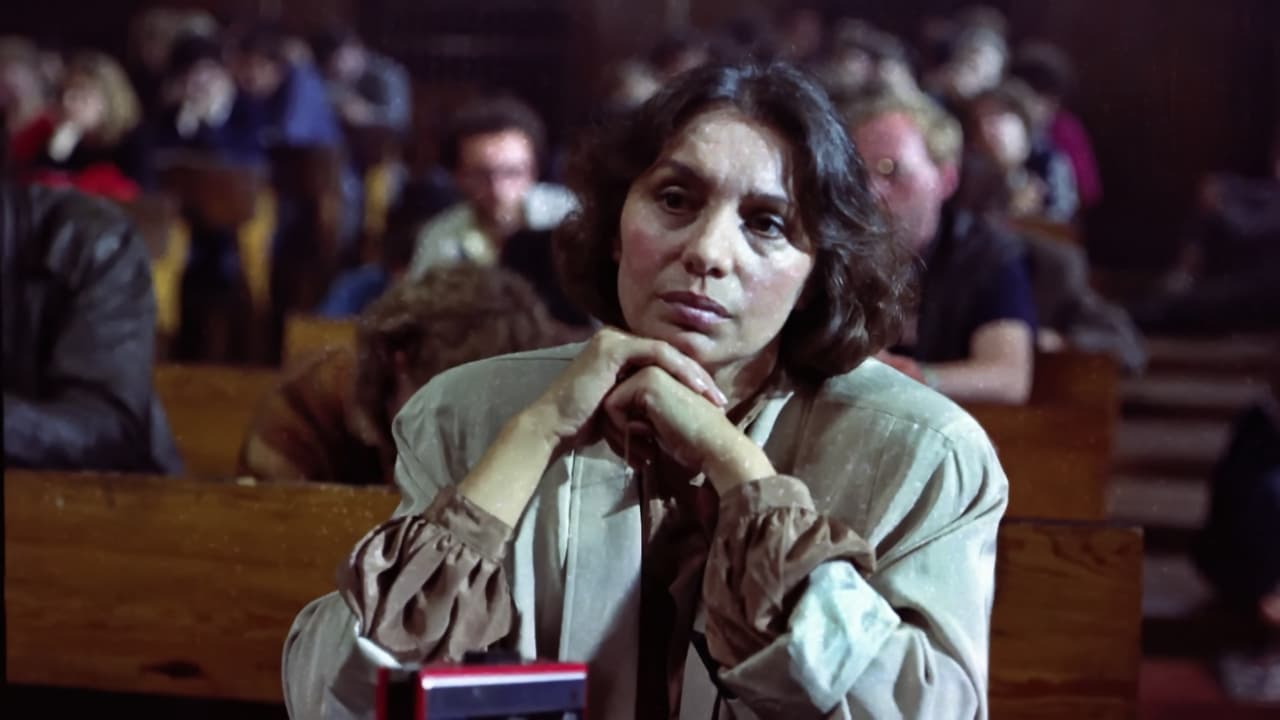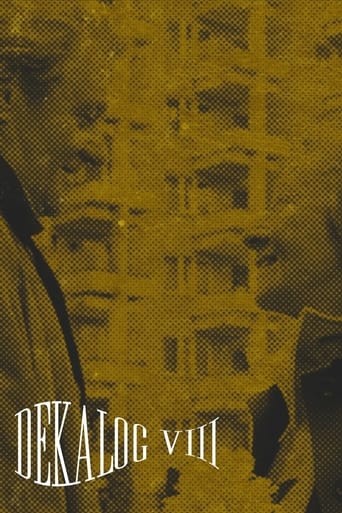SparkMore
n my opinion it was a great movie with some interesting elements, even though having some plot holes and the ending probably was just too messy and crammed together, but still fun to watch and not your casual movie that is similar to all other ones.
Iseerphia
All that we are seeing on the screen is happening with real people, real action sequences in the background, forcing the eye to watch as if we were there.
Sameer Callahan
It really made me laugh, but for some moments I was tearing up because I could relate so much.
Cody
One of the best movies of the year! Incredible from the beginning to the end.
R D
"Simuland" him/herself bears false witness by spreading ignorance!: "What Polish underground? That must have been a really exclusive minority. There was no organized effort by any Polish underground to save Jews; whatever Jews happened to be rescued were done so by individuals acting on their own. To claim otherwise, as K. does, is to lie." FACT: Poland had the largest--and longest lived--underground in Europe during WWII! It gave France & Britain a copy of the Germans' enigma coding machine, & helped to crack the code. FACT: Future Georgetown University Jan Karski escaped to England to inform a doubting West of the Holocaust(including meetings with British foreign secretary Anthony Eden and President Franklin D. Roosevelt). FACT: Zegota (the Council to Aid Jews)was a branch of the Polish underground established to rescue Jews from the Nazis.Its express purpose was to aid the country's Jews and find places of safety for them in occupied Poland. Poland was the only country in occupied Europe with such a dedicated secret organization.Simuland then continues to spew his bigotry: "Widespread deep-seated Polish anti-Semitism both predated and survived the Nazi invasion; Poles killed Jews even after the Nazi's retreated. To this day they make life insufferable for the scarce Jews who remain in their country. (I have this directly from a Jewish colleague who grew up in and fled modern Communist Poland.)" There was strong animosity on both sides toward each other. This came from centuries of antagonistic living in close quarters (predicated by Poland's unprecedented religious tolerance--which is why 90% of European Jews lived autonomously in pre-partitioned Poland). While some Poles did kill Jews, it is likewise true that some Jews killed Poles. To blame the entire populations for the actions of the few, would be like blaming all Americans for the actions of the Ku Klux Klan. Many Jews were communists (the 1st. head of the party in post-war Poland, for example), and helped the Soviets to select & deport 2 million Poles to Siberia after Stalin invaded & divided the country with his ally, Hitler, in 1939 (within a year, 1 million of these Poles were dead). The "pogrom" he alludes was political. In the Cold War, Moscow backed the Arabs against the U.S. backed Israel. It directed the Polish Communist Party to rid itself of its Jewish faction. The non-Jewish & Jewish factions of the party were bitter rivals.
tedg
Everyone, and I mean everyone who is alive, should spend some time with Kieslowski. And to do it right, you need to spend time with these ten experiments.Yes, they are experiments and they are important to the history of cinematic imagination. They are all cowritten. The writing partner sets a knot, a dramatic tangle. Kieslowski then enters this scribble and adds cinematic reality in two ways. The first is simply the cinematic platform of storytelling. The second are a set of cinematic elaborations. Its this second bit that makes him so exciting.They're what I call cinematic folds, but because this is the short form (the movie equivalent of short stories) they only have to be suggested. Taken together, the collection of ten short films is a few hundred loose fishooks, many of which catch you unawares.In his "colors" work he folds these back in his long form experiments.To make this a real experience for us and him, he does most of his work after the project begins filming. And to up the ante, for each of these ten he uses a different creative crew. So you would expect some of these ten to be more adventurous and successful than others.This is the case. This is the least successful of them so far.The value, at least to me, in these is how much Kieslowski there is compared to Piesiewicz. The more of Kieslowski's visual improvisation, the better. This has very little. Blunt viewers will still enjoy the story, which is interesting as such things go. But there's little of the master here. Must have been a time of rest.Ted's Evaluation -- 2 of 3: Has some interesting elements.
Aquilant
Dekalog 8 introduces a debate about a situation described in the second episode of the series, with regard to some interesting researches about thematic morals made in an unadorned lecture hall. As in a game of mirrors, Kieslowski's magical poetry proposes subtle allusions, references, previous solutions analysed under different points of view.The analysis of Elzbieta's personal story framed within the context of her restless past and recalled in the light of her present time made of painful and unavoidable confrontations proposes the harassing thought about our duty to God, about our moral obligations towards the Christian commandment, "Thou shalt not bear false witness against thy neighbour". Is it possible to be merciful to our fellowmen even at the risk of violating the dictates of divine commandments? Are we allowed to help people even if we are aware about the incompatibility between the ethical principles applied to the evidences of religion and the intention of "bearing false witness against our neighbour" to a good purpose? Is it really possible to give up the idea of getting out of the clutches of the Nazi police a six-year-old Jewish child in the desperate need of a certificate of baptism only on account of moral and religious scruples? The dramatic explanation between Elzbieta, haunted by the memories of her unhappy childhood, and Zofia, the elder woman who refused to give her a passport to safety many years ago, call to our minds a sense of bewilderment and affliction.Both of them are afraid of something going up in smoke around them and nothing escapes their remembrances of a painful past. Sad remembrances of course, because nothing hurts like the truth. Crude in the same manner as a vivisection of the soul. Conjured up with surgical precision in the coldness of an utterly impersonal ambient. Maybe only a cathartic face to face between the two women would give life to new friendly relations made of comprehension, explanations, reconciliations. Kieslowski divides all humanity into two parts: the saviors and the saved. His strict dialectics traces all the uneven steps of the story in a very subtle way. He likes to give back to human dignity its state of primitive and natural innocence, deeply upset by a pressing sense of misinterpreted obedience to the precepts of the Church.
sfuss
With a minimum of histrionics, this film tells a simple story about the legacy of the holocaust in Poland.A college professor who once turned away a little Jewish girl who sought refuge is confronted by that same girl -- now in her forties -- and must explain to her the real reason for turning her away. While the two women are able to forge a deep friendship, the man (a tailor) who risked his life to try and save the girl has become, with time, too closed off to allow her to form any sort of bond with him. The film's last image, of the lonely tailor looking out the window of his shop to see the professor and her friend laughing together, has the same straight forward and unassuming emotional wallop that ends many of Kieslowski's films.This may be the best fictional film ever made about the holocaust.

